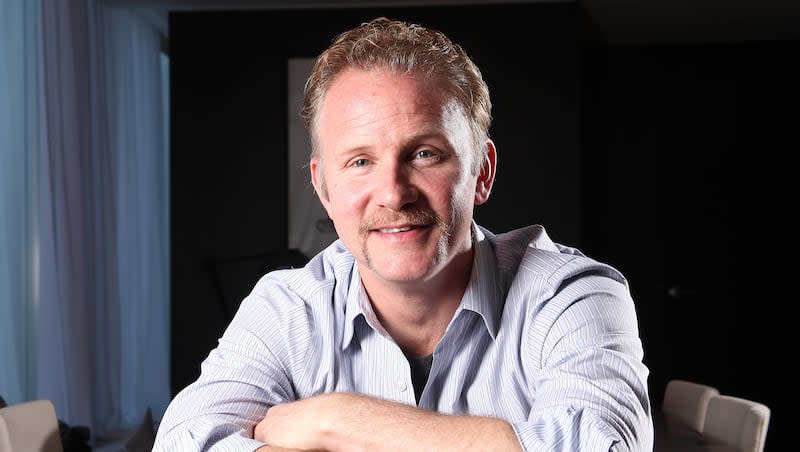Filmmaker behind ‘Super Size Me’ documentary dies from cancer

- Oops!Something went wrong.Please try again later.
- Oops!Something went wrong.Please try again later.
A filmmaker who once spent a month eating only at McDonald’s to make the award-winning documentary “Super Size Me” has died.
Morgan Spurlock, 53, died Thursday from cancer complications, his family said Friday.
“Morgan gave so much through his art, ideas and generosity,” his brother, Craig Spurlock, said in a statement. “The world has lost a true creative genius and a special man.”
Spurlock, who was from West Virginia, famously ate breakfast, lunch and dinner off the McDonald’s menu for 30 straight days to make his 2004 Oscar-nominated film, which highlighted the radical impact that diet had on his physical and psychological health, per ABC News. He reportedly came up with the idea at his parents’ house for Thanksgiving, and while watching a TV news story about a lawsuit filed against McDonald’s by two teenage girls who blamed the fast-food chain for their obesity. Spurlock gained 25 pounds over the course of making the film and suffered liver dysfunction and depression at the end.
He later followed up with a 2017 sequel, “Super Size Me 2: Holy Chicken!,” which was his final documentary.
In the sequel, Spurlock explored how the fast-food industry tried to rebrand under a healthier guise since his first film, ABC News reported. He opened his own fried chicken restaurant in order to expose the marketing tactics fast-food companies had been using on consumers in the 12 years since his original documentary.
“The goal of Holy Chicken is how do you at least start to level the playing field,” he told Juju Chang in an interview for “Nightline” ahead of the film’s release, per ABC News. “The way that I think we’ll beat [competitors] is, can you create a truly farm-to-table localized fast-food restaurant.”
In the same interview, Spurlock opened up about a controversial statement he posted on social media related to the Me Too movement.
“Nobody came forward and said, ‘I’m coming after you,’” he told ABC News about his own sexual misconduct history as detailed in the open letter. He later settled a sexual harassment claim at his production company, Warrior Poets, in which Spurlock recalled making “sexually offensive” comments that “verbally crossed the line.”
“Once I said what I said, everything collapsed,” he said after leaving the company as CEO.
Spurlock also admitted to struggling with alcoholism. While reflecting on his sobriety journey, Spurlock told ABC News he had to start with himself, adding, “I wished I’d done it 10 years ago.”
“I’ve tried to make right with my family, and to make amends to people over the years that I felt like I should’ve treated better along the way. That’s a big part of the journey, right now,” he told Deadline.
“Part of the reason I wrote that essay in the first place,” he said at the time, “was to be on the right side of it. I’m hopeful that in time, with the work that I do and the changes that I continue to go through, that I can be there on the right side.”
Spurlock’s other documentaries include “Where in the World Is Osama bin Laden” in 2008, and “The Greatest Movie Ever Sold” in 2011.

